Books
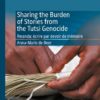
Sharing the Burden of Stories from the Tutsi Genocide
By Anna-Marie de Beer. This book deals with literary representations of the genocide against the Tutsi in Rwanda. Its focus is a transnational, polyphonic writing project entitled Rwanda: écrire par devoir de mémoire (Rwanda: Writing by Duty of Memory), undertaken in 1998 by a group of nine African authors. Anna-Marie de Beer’s study emphasizes the Afropolitan cultural…
Read more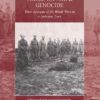
Voices on War and Genocide: Three Accounts of the World Wars in a Galician Town
By Omer Bartov. Taking as its point of departure Omer Bartov’s acclaimed Anatomy of a Genocide, this volume brings together previously unknown accounts by three individuals from Buczacz. These rare narratives give personal glimpses into daily life in unsettled times: a Polish headmaster during World War I, a Ukrainian teacher and witness to both Soviet and…
Read more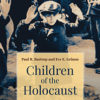
Children of the Holocaust
By Paul R. Bartrop and Eve E. Grimm. This book is a comprehensive examination of the people, ideas, movements, and events related to the experience of children during the Holocaust. They range from children who kept diaries to adults who left memoirs to others who risked (and, sometimes, lost) their lives in trying to rescue…
Read more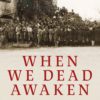
When We Dead Awaken: Australia, New Zealand, and the Armenian Genocide
By James Robins. On April 24th 1915 Armenian intellectuals of the Ottoman Empire were arrested en masse marking the beginning of the Armenian Genocide. The following day, April 25th 1915, saw the Australian and New Zealand Army Corps landing at Gallipoli. This book draws the connections between these two landmark historical events: the genocide of…
Read more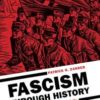
Fascism through History: Culture, Ideology, and Daily Life
By Patrick G. Zander. While fascism perhaps reached its peak in the regimes of Hitler and Mussolini, it continues to permeate governments today. This reference explores the history of fascism and how it has shaped daily life up to the present day. Perhaps the most notable example of fascism was Hitler’s Nazi Germany. Fascists aimed…
Read more
Doing Business with the Nazis: Britain’s Economic and Financial Relations with Germany 1931-39
By Neil Forbes. Britain’s financial and economic relations with Nazi Germany are assessed in this book. The structure and formulation of British policy, the interaction of government and business and the relationship between British business interests and Nazi Germany are looked at. A particular focus of the book is on the crisis of uncertainty felt…
Read more
When Victims Become Killers: Colonialism, Nativism, and the Genocide in Rwanda
By Mahmood Mamdani. “When we captured Kigali, we thought we would face criminals in the state; instead, we faced a criminal population.” So a political commissar in the Rwanda Patriotic Front reflected after the 1994 massacre of as many as one million Tutsis in Rwanda. Underlying his statement is the realization that, though ordered by…
Read more
Hitler and His Allies in World War Two
By Jonathan Adelman. In an area where in-depth studies of Hitler’s relations with Nazi Germany’s allies, and the failure of Nazi Germany to make more effective use of them during the war, are scant, this is a survey that looks at the Soviet Union, Japan, France, Italy, Spain, Romania and Hungary and their relationship to…
Read more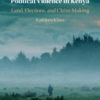
Political Violence in Kenya: Land, Elections, and Claim-Making
By Kathleen Klaus. Examining a key puzzle in the study of electoral violence, this study asks how elites organize violence and why ordinary citizens participate. While existing theories of electoral violence emphasize weak institutions, ethnic cleavages, and the strategic use of violence, few specify how the political incentives of elites interact with the interests of…
Read more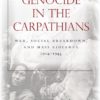
Genocide in the Carpathians: War, Social Breakdown, and Mass Violence, 1914-1945
By Raz Segal. Genocide in the Carpathians presents the history of Subcarpathian Rus’, a multiethnic and multireligious borderland in the heart of Europe. This society of Carpatho-Ruthenians, Jews, Magyars, and Roma disintegrated under pressure of state building in interwar Czechoslovakia and, during World War II, from the onslaught of the Hungarian occupation. Charges of “foreignness”…
Read more
